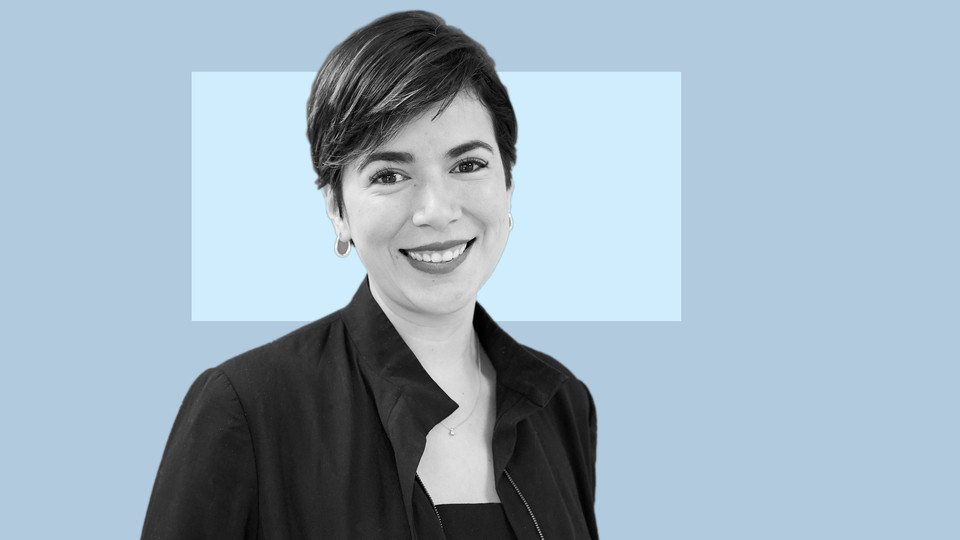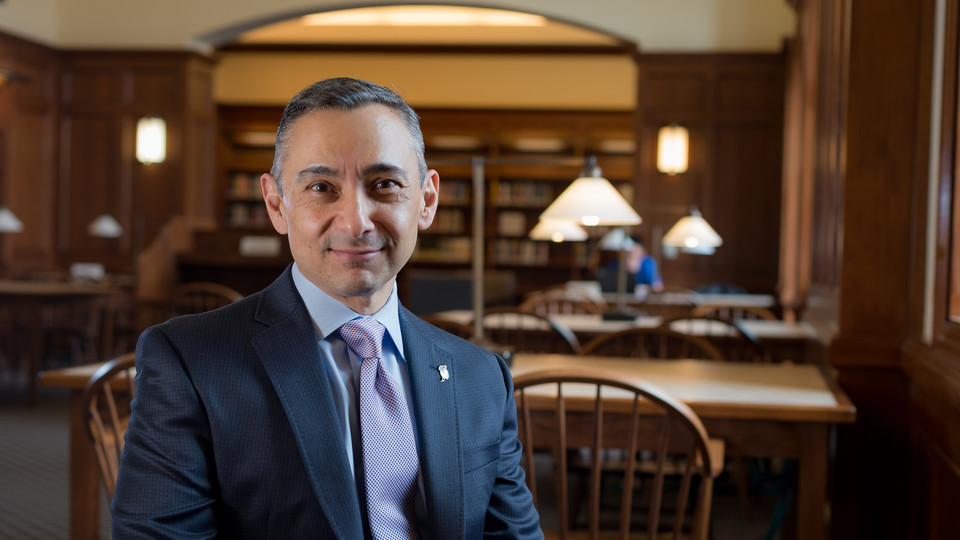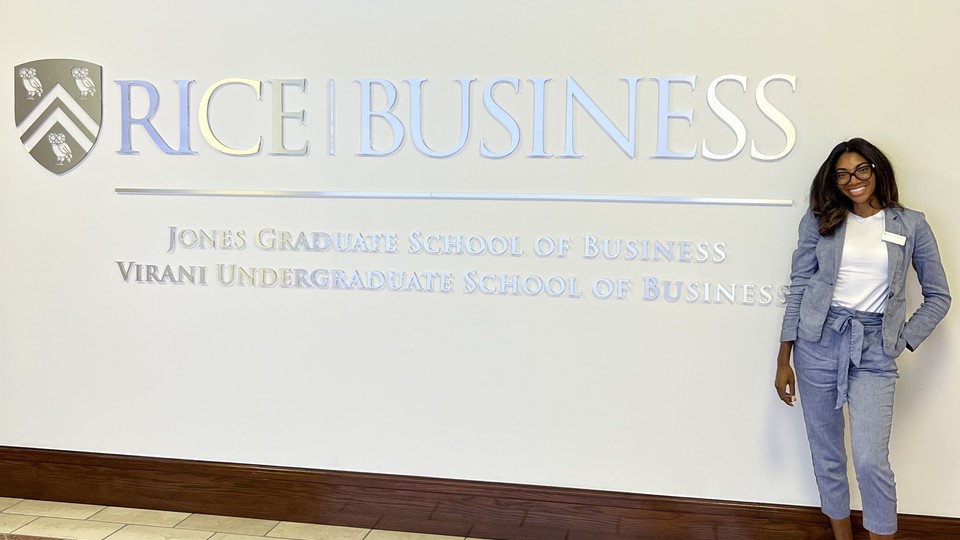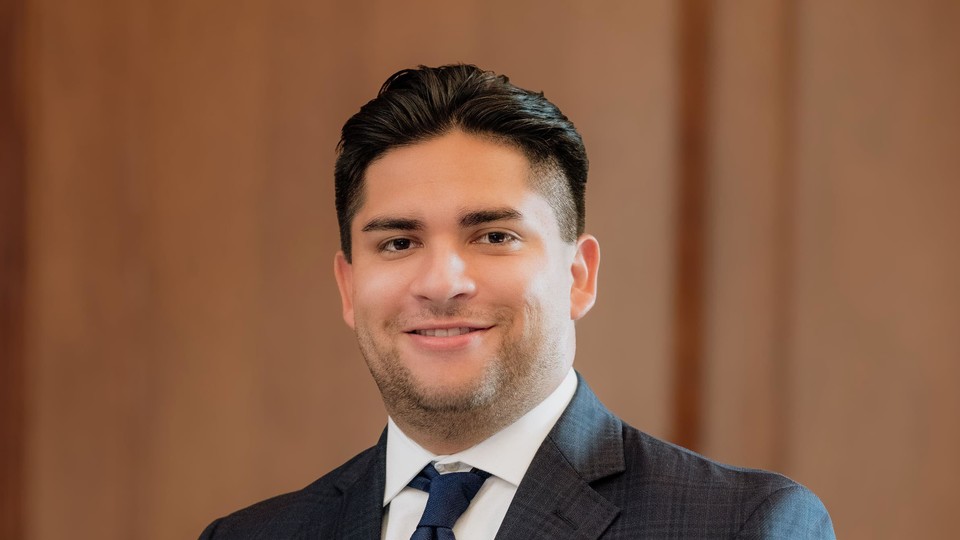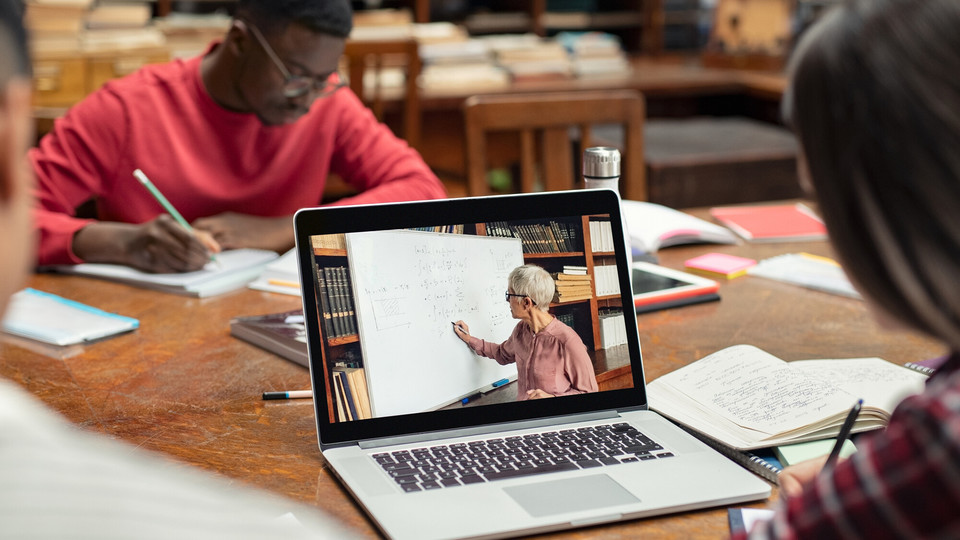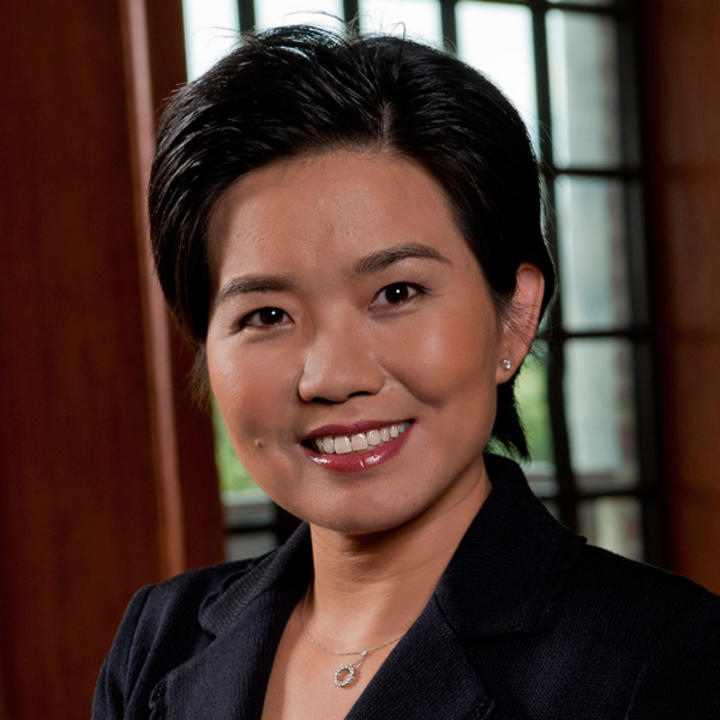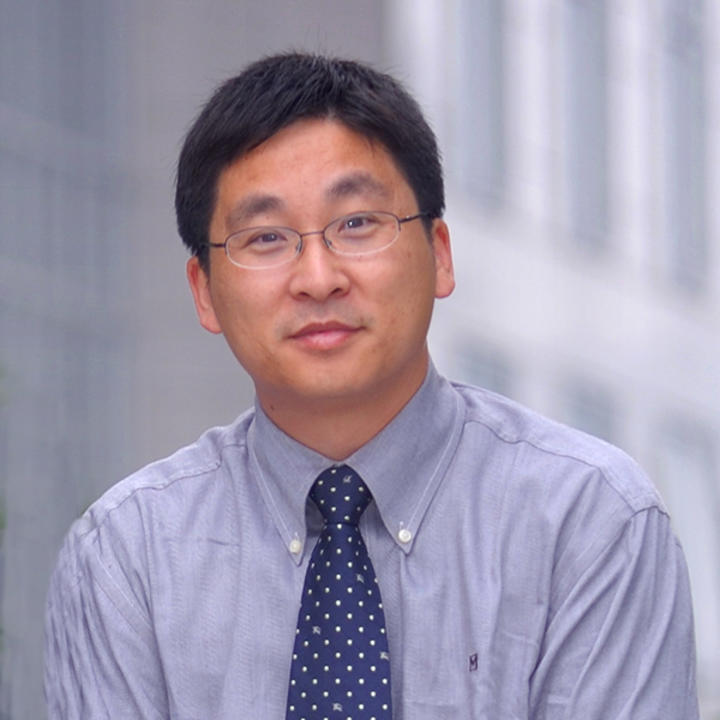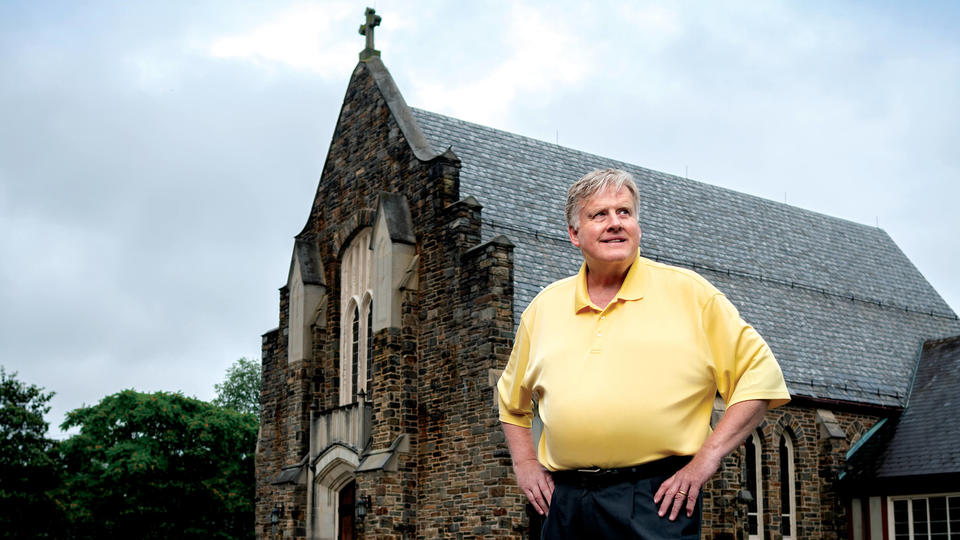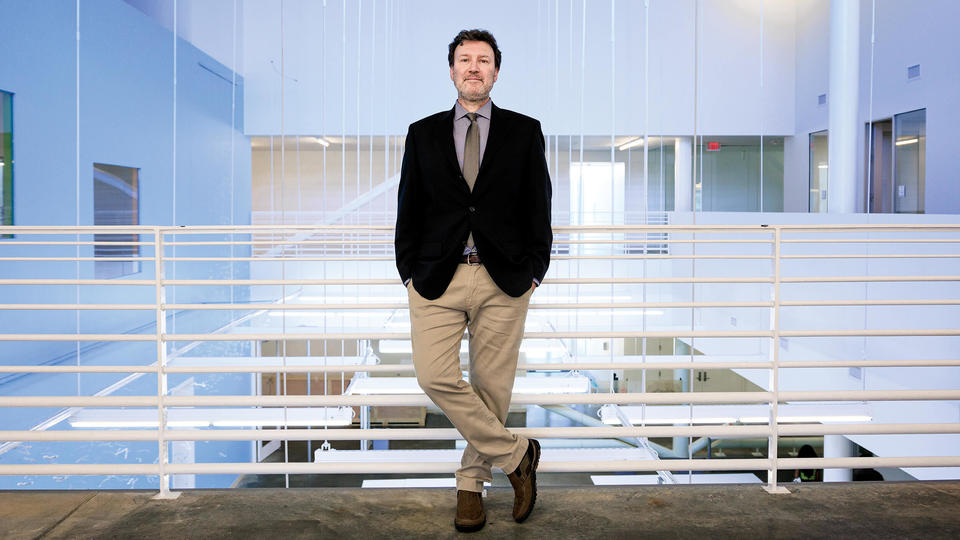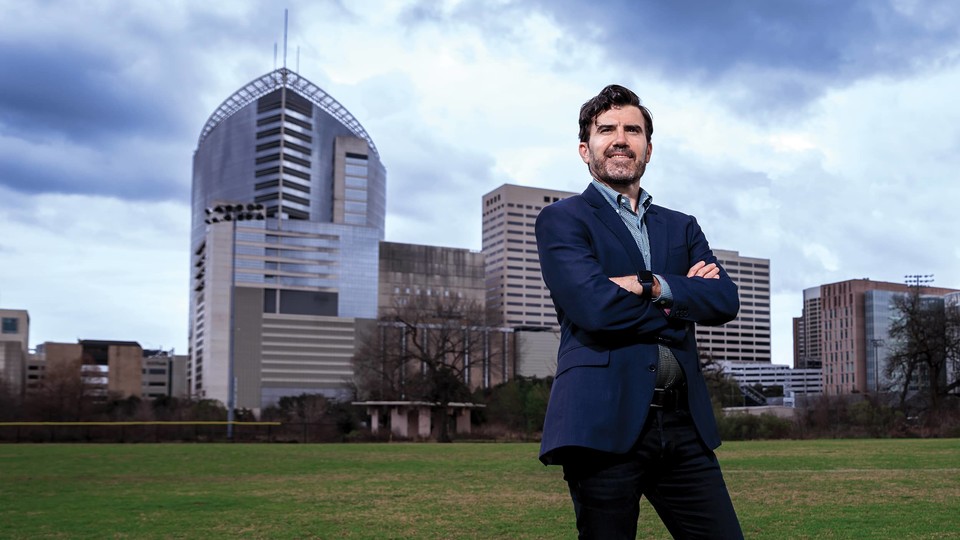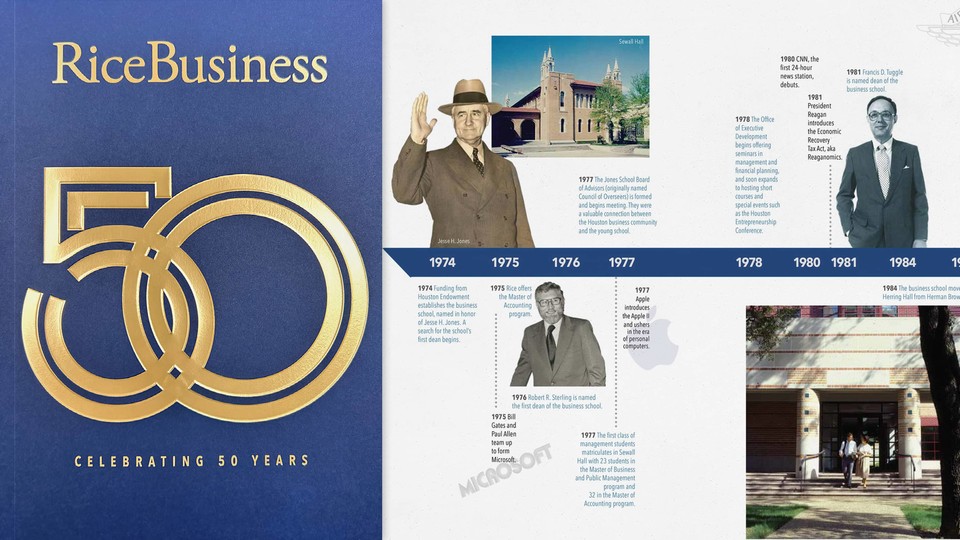
Best Money Market Account Rates
Ryan Bergeron, an adjunct professor at Rice Business teaching real estate, offers advice on finding a new money market account.

How to evaluate an IPO, according to Houston researchers
Many investors assume they can judge the strength of an IPO based on the reputation of the underwriter supporting it. However, a recent study by researchers, including Rice Business professors Anthea Zhang and Haiyang Li, proves this is only sometimes true.

Start 'Em Up
Entrepreneurs share advice for startups


Entrepreneurs share advice for startups
Rice Business is known for building entrepreneurs — the Princeton Review and Entrepreneur magazine, for example, have ranked us No.1 for five years running. Our students have a lot going for them: for example, professors who encourage innovation and places like Liu Idea Lab and Rice Alliance that support their work.
Students also have a large alumni network. In this ongoing series, we turn to our established entrepreneurs for advice on how the next generation can successfully launch and grow their ventures.
This time, we tapped into the expertise of the 200-plus participants in Rice Alumni Entrepreneurs and Innovators roundtables — forums that foster peer-to-peer support within a small group of organization founders. We asked them: How does a founder know when to take the leap and start running their startup full time?
Here’s what these experienced entrepreneurs had to say.
How Do You Know When to Take the Leap?
You take the leap when you’ve validated your thesis or idea and your job becomes “I’m just here because I have to be” instead of “I’m here because I want to be.” Great ideas and entrepreneurs will figure it out … you just have to maintain a positive mindset, tell everyone you know what you’re doing and try to enroll anybody and everybody into your idea.
—Darrell S. Morris ’18
Managing Partner/Owner, Well Done Cooking Classes, and Managing
Principal, The Morris Capital Group
“When you have strategically planned and researched your concept, market and product; secured seed investment or saved up enough capital to live off of for the first year of your endeavor; and reached out to trusted advisors in your network to vet your plan, it’s time to leap.
—Chris Staffel ’17
Founder, Staffel Capital
When you spend every waking hour thinking about the company you must create, it’s time to leap. Great ideas are all-consuming. If you do your research, have a vision for your entity and understand the problem or need you’re going to solve, then get rolling. Plus, if you constantly think you can do it better, it’s likely time to jump in. Don’t hesitate; it’s time wasted.
—Bo Bothe ’05
Founder, ESG Reporting Partners,
and President and Chief Executive Officer, BrandExtract
The trick to entrepreneurship in the 21st century is to never have to take “the leap.” Figure out how to de-risk and scope down the project to a smaller test, proving product market fit with a solid MVP. Many small and quick steps prevent you from taking the proverbial leap and putting considerable time and money at risk.
—Craig Ceccanti ’08
President and COO at Softeq
Take the leap when you realize that the only path forward to reaching your potential is the one you cut yourself. The fear of failure from putting yourself beyond your comfort zone is smaller than the fear of not jumping and forever regretting your decision.
—Edgar Vargas-Castaneda ’15
VP of Growth Strategy and Business Optimization, TransPerfect
Before my entrepreneurial journey started, I was like every other aspiring entrepreneur asking, “How will I know when I’m ready?” I dreamed a lot about it and talked about it, but I didn’t have meaningful traction yet. Around that time, I was in my early 30s and on a flight from Houston to Seattle, and I got upgraded. The man next to me was in his 50s and the owner of a medical device business in Houston. He was flying to Seattle where he lived with his family. After an enjoyable discussion about his journey, I asked him “If you could give one piece of advice to an aspiring entrepreneur, what would it be?” He said: “Do it. Do it now. Take action. Don’t wait any longer. It takes time to do it, to figure it out, to build it, and to extract value from it. We have limited time. You must do it now.”
—Don Porr ’97
CEO, Diamond Companies
Take the leap when you find an idea aligned with your values and mission, especially during tough times for you and your team. Ensure your idea consistently outperforms the next best alternatives. Trust your instincts but validate assumptions from both skeptics and supporters. Don’t overanalyze; be ready to improvise.
—Rohan Bairat ’09
CEO, Sigga Technologies and Chairman of the Board/Co-Founder, 21Senses
You May Also Like
Keep Exploring
Life as a Corporate Leader and Entrepreneur: Meet Executive MBA student, Willis Chen
- Read more about Life as a Corporate Leader and Entrepreneur: Meet Executive MBA student, Willis Chen
Discover how Willis Chen harmonizes his corporate role and entrepreneurship, all while charting a course for his career with the Executive MBA program.
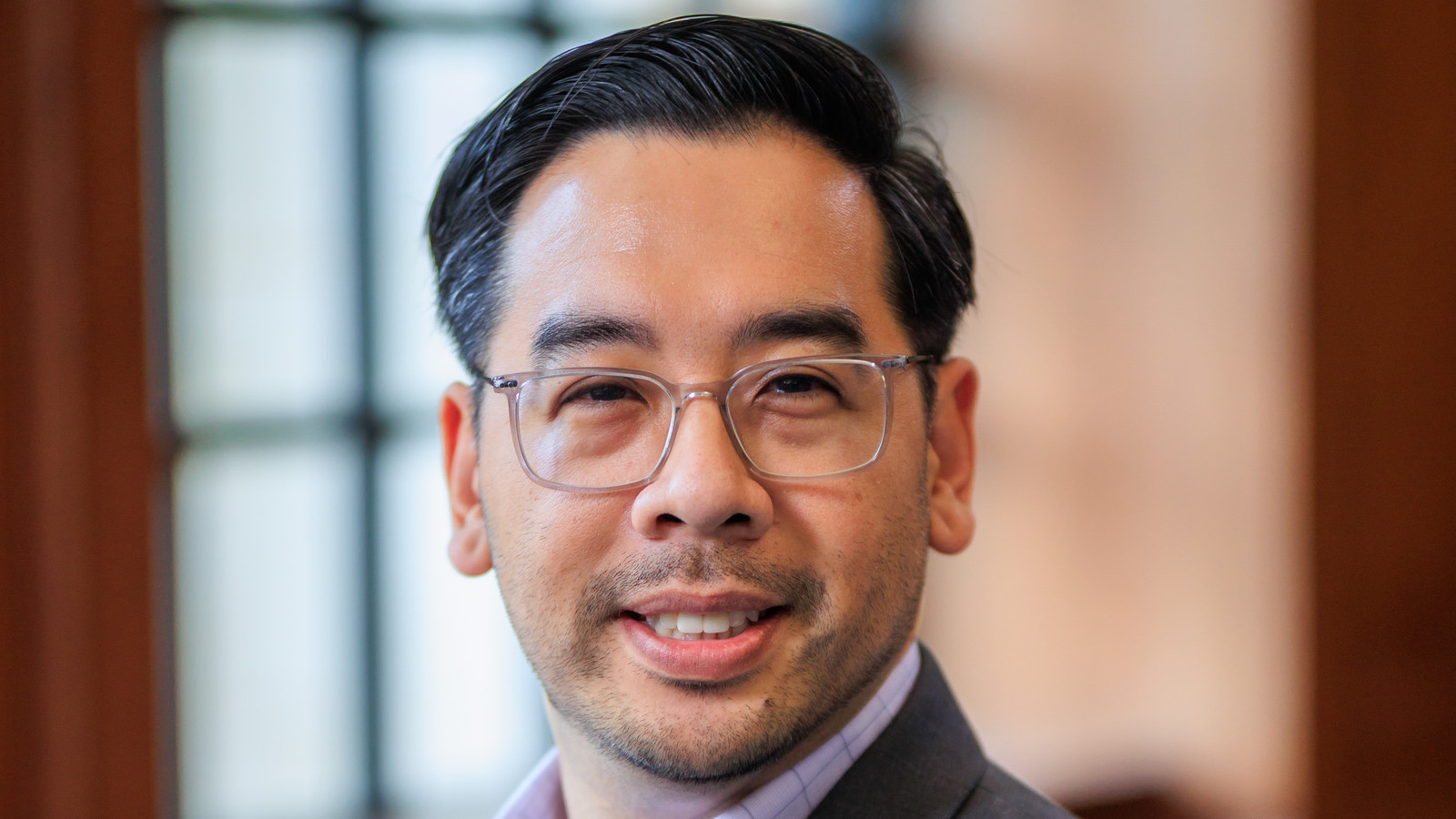
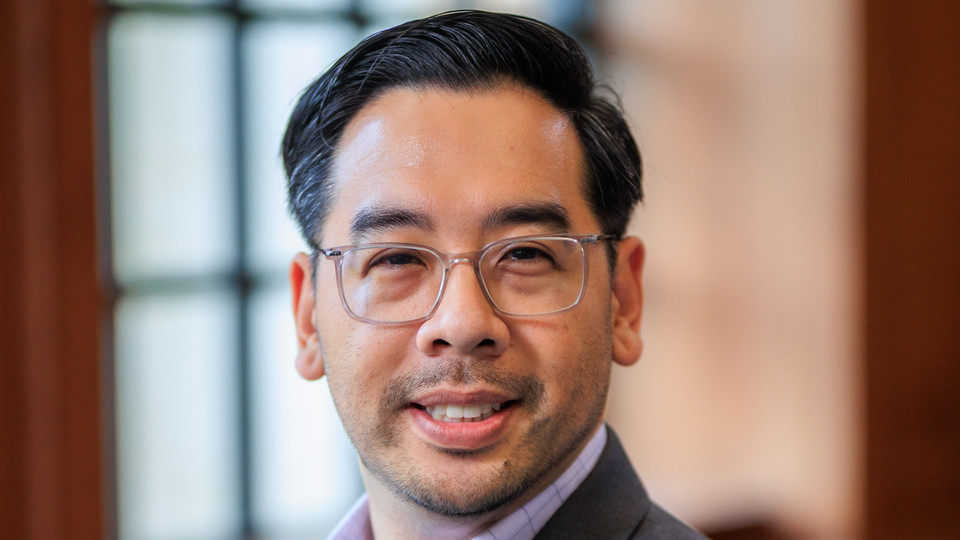
Education
University of Houston: an undergraduate degree in management
information systems.
Current Role and Career Journey
Currently, I am the director of strategy, planning and operations at AOI (Applied Optoelectronics, Inc.), a prominent semiconductor telecommunications company.
Throughout my two-decade tenure, I’ve developed a diverse skill set. Starting from the ground level in order entry in 2004, I moved to more significant roles in sales, marketing, project management and process improvement. My role expanded significantly as the company acquired two Asian manufacturing sites and established a research and development center in Atlanta, Georgia. Additionally, we went public on the NASDAQ exchange in 2013.
During this time, I also nurtured a passion for DJing. What started as a hobby became a successful business venture for over 24 years. DJing honed my ability to cater to diverse audiences, adapt to preferences, and strategically manage events, eventually leading me to event planning and wedding planning businesses.
I'm also committed to community involvement. I have served in leadership capacities at non-profits like a summer camp for kids for over 26 years, a local AAPI performing arts non-profit organization for five years, and a high school Junior Achievement team (winning 2nd place at JA EnTEENpreneur Conference at Rice University this past December).
These experiences have underscored the inter-connectedness of personal and professional growth. With the recent milestone of starting a family, I chose to pursue an Executive MBA to continue my advancement and leadership journey.
Why did you choose a Rice Business Executive MBA?
I chose Rice’s EMBA program for its strong brand reputation, focus on student diversity and convenient location. The program's prestige enhances my professional profile and networking opportunities. The diverse student body exposes me to perspectives beyond my industry experience. And the proximity to my workplace allows easy access to resources and deeper connections with classmates and alumni. Additionally, as a local alumnus, I can audit classes after graduating.
What do you enjoy the most about being a Rice MBA student?
I appreciate the program’s convenient location. The proximity has been a significant advantage, allowing me to attend more events and meet with team members more easily, enhancing my overall experience.
How does the program positively impact you at work, and can you share an example of applying what you learned on the job?
The EMBA program pairs groups with executive coaches, a valuable resource that has broadened my view on coaching and mentoring others. I’ve gained insights into effective methods for nurturing teams and mentoring students. Also, I’ve proactively sought out additional coaches to further my own development. In this way, I've gained valuable insights from seasoned executives.
Willis Chen is an Executive MBA student in the Class of 2025.
The Rice MBA
Protein ice cream company wins 2024 Rice Business Plan Competition
Ice cream company Protein Pints took home the grand prize at the 2024 Rice Business Plan Competition (RBPC) April 6 as the best student ventures from top universities across the world competed for prizes in front of nearly 350 angel, venture capital and corporate investors and members of the business community.
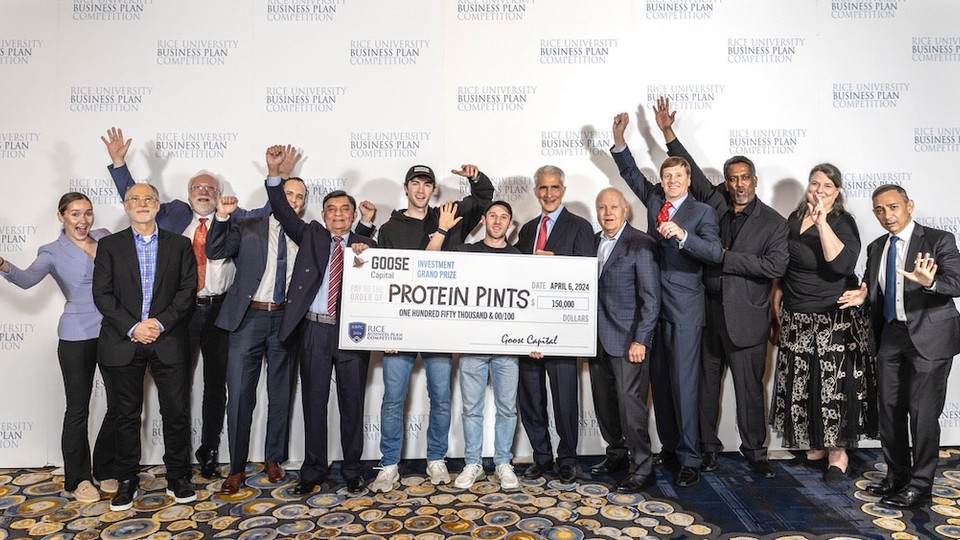
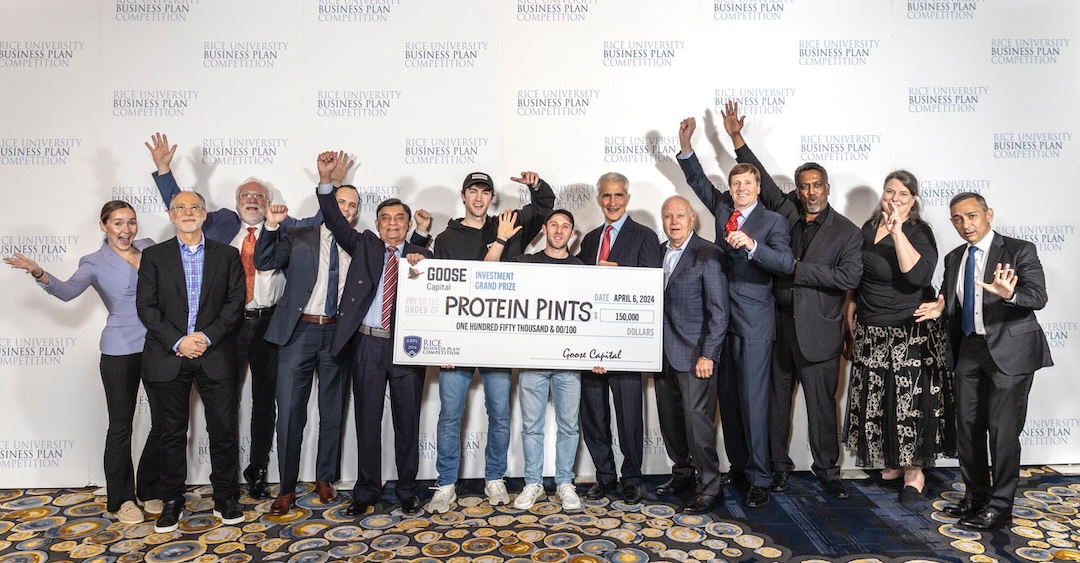
Rice University hosts world’s largest and richest student startup competition
Ice cream company Protein Pints took home the grand prize at the 2024 Rice Business Plan Competition (RBPC) April 6 as the best student ventures from top universities across the world competed for prizes in front of nearly 350 angel, venture capital and corporate investors and members of the business community.
During his acceptance speech, Founder and CEO of Protein Pints Paul Reiss said, “"The love and support that we've been shown during our time here at Rice, and the relationships and the friends that we've made, is something that I know I and every other student here is going to remember for the rest of our lives."
Hosted annually by the Rice Alliance for Technology and Entrepreneurship and Rice University’s Jones Graduate School of Business, the RBPC is the world’s largest and richest student startup competition.
The RBPC offers real-world opportunities to learn what’s required to successfully launch a new business. In addition to the substantial cash, investment and in-kind prizes, the heart of the competition is the mentoring from investors and experienced entrepreneurs. RBPC alumni have raised more than $6.1 billion in capital and 288 are in business or have had successful exits.
The winners were announced at the conclusion of the three-day pitching, mentoring and networking event, which included an elevator pitch competition, practice round, semifinals, wildcard and final round.
“We award the competitors $1 million in prizes, prizes that serve as foundational capital to launch their startup,” said RBPC Director Catherine Santamaria in her welcome speech at the awards gala April 6.
“That’s a large number of prizes, but the biggest thing our startups leave with is a feeling of generosity and community from this room. This community is always ready and willing to help our founders and support our vision for the competition by investing time, money and resources in these student innovators.”
The 42 competing startups represented 35 universities from four countries. They were chosen from more than 450 applicants to compete in one of five categories: energy, cleantech and sustainability; life sciences and health care solutions; consumer products and services; hard tech; and digital enterprise. Learn more about all of the startups that competed in the RBPC here.
The seven finalists based on the judges’ overall scores were:
Protein Pints, Michigan State University — first place and the $150,000 GOOSE Capital Investment Grand Prize.
- Protein Pints is a high-protein, low-sugar, ice cream product designed for people who would benefit from having access to a functional ice cream and/or better tasting and more enjoyable protein options.
Somnair, Johns Hopkins University — second place and the $100,000 Investment Prize, sponsored by David Anderson, Jon Finger, Anderson Family Fund, Finger Interests, Greg Novak and Tracy Druce.
- Somnair is a Novel Non-Invasive Neurostimulation device for the treatment of obstructive sleep apnea.
Power2Polymers, RWTH Aachen University — third place and the $50,000 Rice University investment, provided by the Rice Alliance for Technology and Entrepreneurship and sponsored by Finger Interests, the Anderson Family Fund at the Greater Houston Community Foundation, Greg Novak and Tracy Druce.
- Power2Polymers tackles the pressing issue of 'forever chemicals', which have been linked to over 6.5 million deaths in the U.S. alone, by offering safe alternatives free of forever chemicals.
Informuta, Tulane University — fourth place and the $5,000 prize, sponsored by Norton Rose Fulbright.
- Informuta's proprietary technology leverages DNA sequencing to predict if bacteria will respond to different antibiotics or, for the very first time, develop future resistance thus causing treatment failure.
Icorium Engineering Company, University of Kansas — fifth place and the $5,000 prize, sponsored by EY.
- Icorium Engineering Company is a chemical engineering startup and University of Kansas spinout developing technologies to make sustainable, circular economies a reality for refrigerants and other complex chemical mixtures.
EndoShunt Medical, Harvard University — sixth place and the $5,000 prize, sponsored by Chevron Technology Ventures.
- EndoShunt is transforming trauma surgery with a rapid, targeted blood flow control device.
D.Sole, Carnegie Mellon University — seventh place and the $5,000 prize, sponsored by Shell Ventures.
- D. Sole is advancing the development of remote patient monitoring in podiatry with foot insoles designed for the early detection and monitoring of diabetic foot complications, such as ulcers and deformities.
The fourth through seventh place startups were also awarded an additional investment prize of $25,000 each provided by Rice Alliance and sponsored by David Anderson, Jon Finger, Anderson Family Fund, Finger Interests, Greg Novak and Tracy Druce, bringing their finalist prize totals up to $30,000.
Other significant prizes this year and the teams that won them include:
- $200,000 Goose Capital Investment Prize — Osphim, RWTH Aachen University
- $250,000 OWL Investment Prizes — MesaQuantum, Harvard University
- $100,000 OWL Investment Prizes — Icorium Engineering Company, University of Kansas
- $100,000 Houston Angel Network Investment Prize — Somnair, Johns Hopkins University
- $100,000 The Indus Entrepreneurs (TiE) Texas Angels Investment Prize — Protein Pints, Michigan State University
- $60,000 nCourage Courageous Women Entrepreneur Investment Prize — MesaQuantum, Harvard University
- $40,000 nCourage Courageous Women Entrepreneur Investment Prize — Icorium Engineering Company, University of Kansas
- $40,000 Pearland EDC Spirit of Entrepreneurship Cash Prize — Informuta, Tulane University
- $25,000 New Climate Ventures Sustainable Investment Prize — Oxylus Energy, Yale University
- $25,000 Dream Big Ventures Latino Entrepreneur Investment Prize — Dendritic Health AI, Northwestern University
- $25,000 NOV Energy Technology Innovation Cash Prize — LiQuidium, University of Houston
- $25,000 Urban Capital Network Diversity Investment Prize in Partnership with South Loop Venture Investment Prize — TouchStone, University of California, Berkeley
- $25,000 Southwest National Pediatric Device Consortium Pediatric Device Cash Prize — EndoShunt Medical, Harvard University
- $25,000 Jacobs, Intuitive Machines and WRX Companies Rising Stars Space Technology and Commercial Aerospace Cash Prize — MesaQuantum, Harvard University
For more information about the 2024 Rice Business Plan Competition, visit rbpc.rice.edu.
You May Also Like

Rice University’s Jesse H. Jones Graduate School of Business today announced the launch of its Graduate Certificate in Healthcare Management program, a 10-month, credit-bearing professional credential designed for current and aspiring leaders seeking deep expertise in the business of healthcare.
You Can’t Always Judge an IPO by its Underwriter
In emerging markets, pricing — not reputation — drives the partnership between underwriter and IPO.


Based on research by Yan “Anthea” Zhang (Rice Business), Haiyang Li (Rice Business), Jin Chen, and Jing Jin
Key findings:
- In mature markets like NYSE, underwriter reputation is a reliable indicator of IPO quality.
- But in emerging markets, underwriter fees are a better indicator of investment risk.
- Investors should only assume that top-tier underwriters represent high-quality firms if the market has a developed regulatory environment.
Many investors assume they can judge the strength of an IPO based on the reputation of the underwriter supporting it.
However, a recent study by Rice Business professors Anthea Zhang and Haiyang Li, along with Jin Chen (Nottingham University) and Jing Jin (University of International Business and Economics), proves this is only sometimes true — depending on how mature the stock exchange is.
Getting your company listed on the stock market is a big step. It opens new opportunities to raise money and grow the business. But it also means facing increased regulations, reporting requirements and public scrutiny.
To successfully launch an initial public offering (IPO), most companies hire “underwriters” — financial services firms — to guide them through the complex process. Because underwriters have expertise in valuations, filing paperwork and promoting to investors, they play a crucial role in ushering companies onto the market.
In well-established markets like the New York Stock Exchange (NYSE), an underwriter’s reputation carries immense weight with investors. Top-tier banks like Goldman Sachs have built their reputations by rigorously vetting and partnering with only the most promising companies. When Goldman Sachs takes on the role of underwriter, it sends a strong signal to potential investors that the IPO has met stringent standards. After all, a firm of Goldman’s caliber would not risk tarnishing its hard-earned reputation by associating with subpar companies.
Conversely, IPO firms recognize the value of having a prestigious underwriter. Such an association lends credibility and prestige, enhancing the company’s appeal. In a mature market environment, the underwriter’s reputation correlates to the IPO’s potential, benefiting both the investors who seek opportunities and the companies wanting to make a strong public debut.
However, assumptions about an underwriter’s reputation only hold true if the stock exchange is mature. In emerging or less developed markets, the reputation of an underwriter has no bearing on the quality or potential of the IPO it pairs with.
In an emerging market, the study finds, investors should pay attention to how much the underwriter charges a given IPO for their services. The higher the fee, the riskier it would be to invest in the IPO firm.
To arrive at their findings, the researchers leveraged a unique opportunity in China’s ChiNext Exchange. When ChiNext opened in 2009, regulations were low. Banks faced little consequence for underwriting a substandard IPO. Numerous IPOs on ChiNext were discovered to have engaged in accounting malpractice and inaccurate reporting, resulting in financial losses for investors and eroding confidence in the capital markets. So, for 18 months during 2012-2013, ChiNext closed. When it reopened, exchange reforms were stricter. And suddenly, underwriter reputation became a more reliable marker of IPO quality.
“Our research shows how priorities evolve as markets mature,” Zhang says. “In a new or developing exchange without established regulations, underwriter fees paid by IPO firms dictate the underwriter-company partnership. But as markets reform and mature, reputation and quality become the driving factors.”
The study makes a critical intervention in the understanding of market mechanisms. The findings matter for companies, investors and regulators across societies, highlighting how incentives shift, markets evolve and economic systems work.
The research opens the door to other areas of inquiry. For example, future studies could track relationships between underwriters and companies to reveal the long-term impacts of reputation, fees and rule changes. Research along these lines could help identify best practices benefiting all market participants.
“In the future, researchers could explore how cultural norms, regulations and investor behaviors influence IPO success,” says Li. “Long-term studies on specific underwriter-firm pairs could reveal insights into investor confidence and market stability. Understanding these dynamics can benefit companies, investors and policymakers alike.”
Zhang, et al. (2022). “Who Do You Take To Tango? Examining Pairing Mechanisms Between Underwriters and Initial Public Offering Firms in a Nascent Stock Market,” Strategic Entrepreneurship Journal.
Never Miss A Story
You May Also Like
Keep Exploring
Eight Black Administrators Take on New Roles in Higher Education
Ken Jett has been appointed vice president of facilities and capital planning in the Division of Operations, Finance, and Support at Rice University. His new role includes an appointment as president of the Rice Real Estate Company.
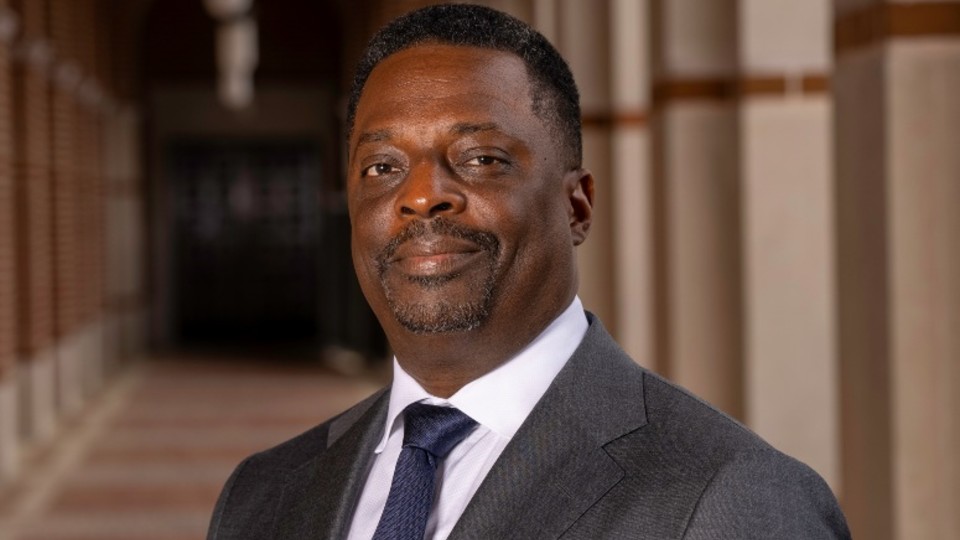
Our Contributors
Meet the contributing writers to this edition of Rice Business Magazine.
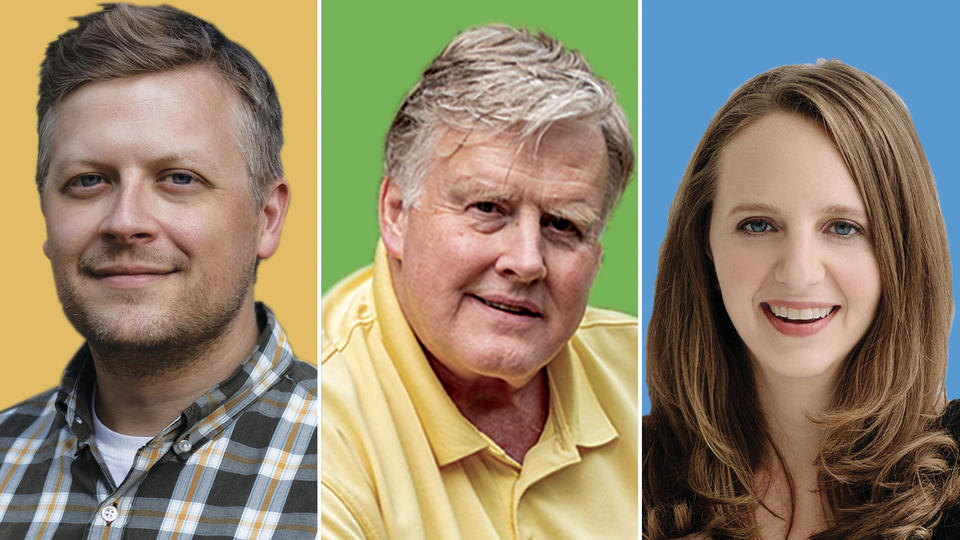
What’s the one place in the world you have never seen, but would like to visit?

Scott Pett
My in-laws are from Guatemala, which means my two kids are from there as well. So, Lake Atitlan, the deepest lake in Central America, is at the top of my wish list. It’s like Lake Como but surrounded by volcanoes. Seeing a sunrise there would be a dream.
Learn more about Scott

Rick Reinhard ’82
The Holy Land holds the most fascination for me —where the Christian, Jewish and Muslim religions all come together — though at the moment, returning to tubing down the Trinity River in New Braunfels provides some serious allure.
Learn more about Rick

Deborah Lynn Blumberg
I’d like to visit the towns in the French countryside that I discovered my great-grandfather Gertz was stationed in after I read the more than 100-year-old love letters he sent my great-grandmother during World War I.
Learn more about Deborah
Dean
Peter Rodriguez
Executive Director
Marketing and Communication
Kathleen Harrington Clark
Editor-in-Chief
Maureen Harmon
Editors
Weezie Mackey
Scott Pett
Design Director
Bill Carson Design
Marketing
Kateri Benoit
Chelsea Clark ’23
Tricia Delone
Dawn Kinsey
Annie McDonald
Wafa Mohamed ’24
Michael Okullu
Kevin Palmer
Ananya Zachariah
Contributing Writers
Deborah Lynn Blumberg
Larry Clow
Maureen Harmon
Weezie Mackey
Scott Pett
Rick Reinhard ’82
Proofreader
Jenny West Rozelle
Contributing Photographers
Bill Carson
Jeff Fitlow
An Le
Annie McDonald
Mike Morgan
Contributing Illustrator
John W. Tomac
Printing
RRD Houston
Keep Exploring
Letter from the Editor
“Our location allows us to do what great educational institutions do best: give our students and faculty the resources and connections they need to solve global problems for the betterment of all.”
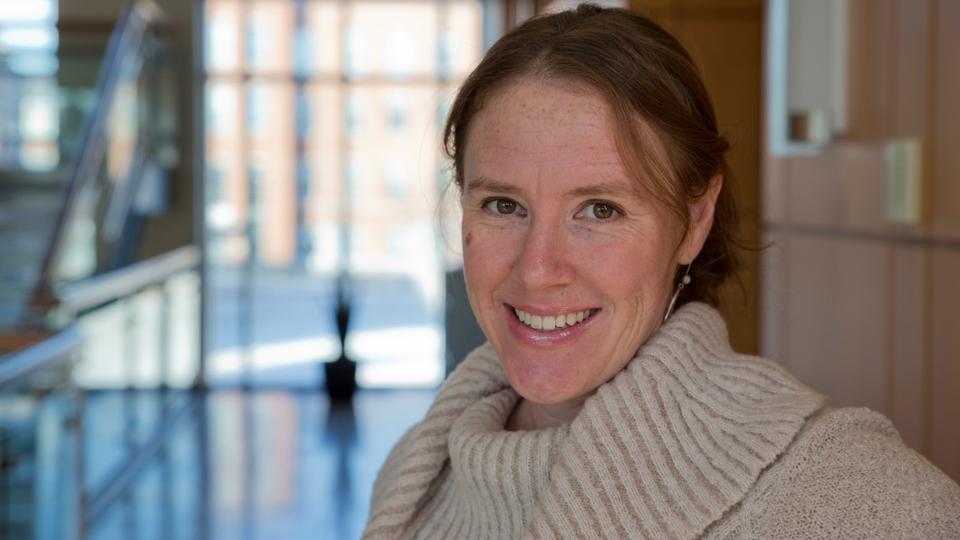
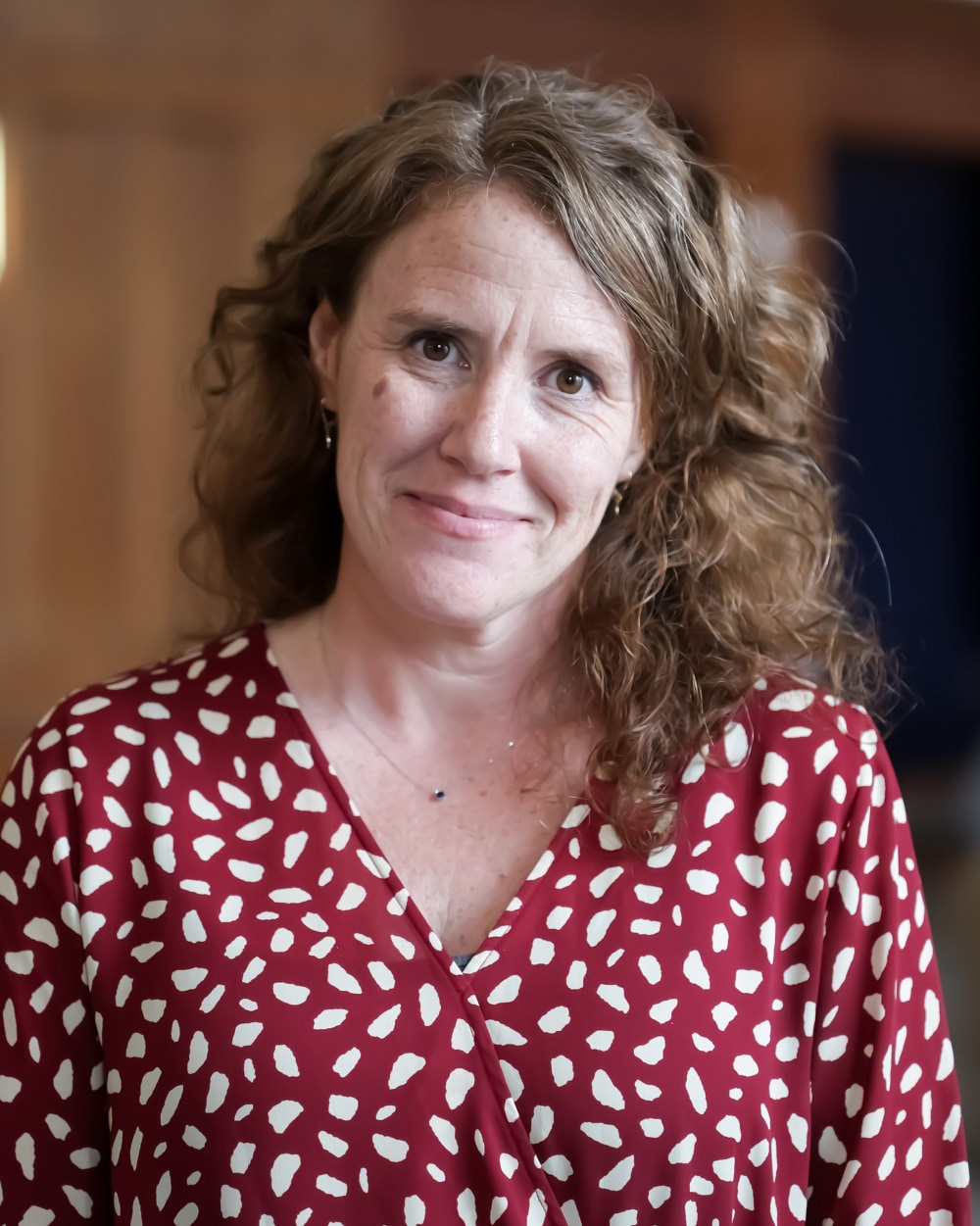
The first year in any new job is getting to know the people, the culture and the place — and I have spent the last few months doing just that. I’ve sipped Audrey’s coffee with staff to learn more about the services and opportunities we offer students. I’ve talked with faculty members to learn more about their research. And I’ve had great conversations with alumni about their career paths and story ideas.
When work is all said and done at the office, I’ve spent a lot of time getting to know the very cool city of Houston — its neighborhoods, like the Heights and Montrose; its outdoor walking spots, including Hermann Park and the new land bridge in Memorial Park; and its food, from the obvious Tex-Mex and barbecue delights to the extensive global cuisine that Houston offers, including any African, French, Mexican, Indian or Asian dish you’re after.
But our location gives us so much more than delicious meals and trendy neighborhoods. We sit at the center of one of the largest, most diverse cities in the U.S. with more Fortune 500 companies than any other city except New York City. This allows us to do what great educational institutions do best: give our students and faculty the resources and connections they need to solve global problems for the betterment of all.
One of those global issues is the coming energy transition. Our location in the energy capital of the world puts Rice in an ideal spot to study one the largest issues of our time. The decades-long transition to cleaner energy will be daunting as businesses try to grapple with the right decisions to move forward. To prepare, Professor Nicola Secomandi recently took on a new role at Rice Business: senior advisor to the dean on energy transition. Secomandi will be the first to tell you that he doesn’t have definitive answers. But he does know Houston is a great spot to find them, to have these conversations, to conduct this research and to collaborate with partners in the city. — Maureen
Our location allows us to do what great educational institutions do best: give our students and faculty the resources and connections they need to solve global problems for the betterment of all.
Email: maureen.harmon@rice.edu
Keep Exploring
Failing Forward
Wendy Fong EMBA ’13 looks back on the biggest mistake of her career — and the clarity it gave her to discover the work she loves.

Wendy Fong EMBA ’13 looks back on the biggest mistake of her career — and the clarity it gave her to discover the work she loves.
I quit my job. I was an associate vice president of operations for the neuroscience department at Memorial Hermann with 20 years of experience and a team of 200 behind me. I supported amazing physicians. I built new offices. I brought new capabilities and technologies to hospitals. I was helping people — administrators, staff, healthcare workers and patients. It was all so exciting — and I quit.
My intentions were good: I wanted to make an even bigger impact, one I thought I could find in a health-tech startup. But when my team dwindled from 200 to 10 overnight, I thought: I made a huge mistake.
Sure, I would have the chance to make an impact on patients if the product took off — millions of them. There were people out there who would be thrilled to take on that task, one with such an undoubtedly laudable mission, but I realized quickly that I didn’t love the day-to-day work. I realized in that “mistake” that a business’ external success isn’t where I find the most joy. In leaving my job I lost the chance to develop and mentor a large team. There weren’t established ladders for employees to climb because we were still building the infrastructure. I couldn’t help them identify and strengthen their talents because we were all wearing many hats and scrambling to make it all work with what we had.
In the past, I thrived in that startup, make-it-work-with-what-you’ve-got culture, but this time, something was missing. In those days, I learned a lesson: My true passion was people, not operations. In a big organization like Memorial Hermann, it was all so intertwined that I couldn’t see my passion clearly.
I thought a role in HR might make the perfect fit, but it turns out companies want HR employees who actually have HR backgrounds. Finally, I turned to a classmate for help. He had led HR for an international oil and gas company and connected me with colleagues of his, but he was also very honest. “You need to talk to these people to understand what their needs are, tell them who you are and find your path,” he said. “But, you know, I don’t think that it’s the path of an individual contributor in an HR department.”
He was right. And it turns out that I was wrong, not only in the idea that I should be in HR, but also in the idea that I could no longer thrive in a startup. In fact, I launched my own business, Chief Gigs — and I’m doing the best work of my life now as a business coach helping companies figure out how to unleash the talents of their people and put the right people in the right seats.
Today my work is truly fun and infinitely rewarding. I love helping companies put the pieces of their talent puzzle together. And I never would have gotten here — to this work that is making an impact not only on businesses like Fortune 1000 companies, nonprofits, startups and investment groups but on individual careers — had I not quit my job and made what I then thought was a poor choice. Turns out that misstep was actually just a step on my path.
Tips From the Business Coach:
Wendy Fong, partner and principal of Chief Gigs, offers a few pieces of advice to business leaders on building talent within your organization.
- Hiring someone who thinks like you isn’t always your best move: “People’s biases are so strong, and they don’t know it. Employers tend to hire others who are like them. I found entire teams all centered around the same behavioral tendencies. That approach doesn’t offer a diversity of thought or opinion — key components to better ideas and a stronger organization.”
- Diversity of thought is imperative, but that doesn’t mean it’s always easy on leadership. “You have to be able to work with different people with different work styles. They might be introverted. They might need time to think through ideas. They might want to talk through an idea with you. They might need a lot more detail than you’re willing to give. In the end, they’re going to be better able to do their job if you’re willing to invest the time in understanding — and supporting — how they work.”
- Ask Yourself: “How Do Others See Me?” “Do a little research on the Predictive Index profile. It’s Iike magic. It’s a behavioral assessment like DiSC or Myers-Briggs, but the output is so intuitive. The Predictive Index consists of only two questions and takes about five minutes to complete. The Predictive Index asks: ‘Who are you?’ In other words, who do you think you are as a person? And, ‘How do you feel you’re expected to act at work?’ Let’s say you’re an independent decision-maker. You may seem overly aggressive to your colleagues or to your direct reports. The Predictive Index identifies your strengths and what I like to call ‘cautions,’ and provides insights and self-coaching questions to allow for self-reflection and adjustments.
To hear more of Fong’s story, listen to her interview on the “Owl Have You Know” podcast:
